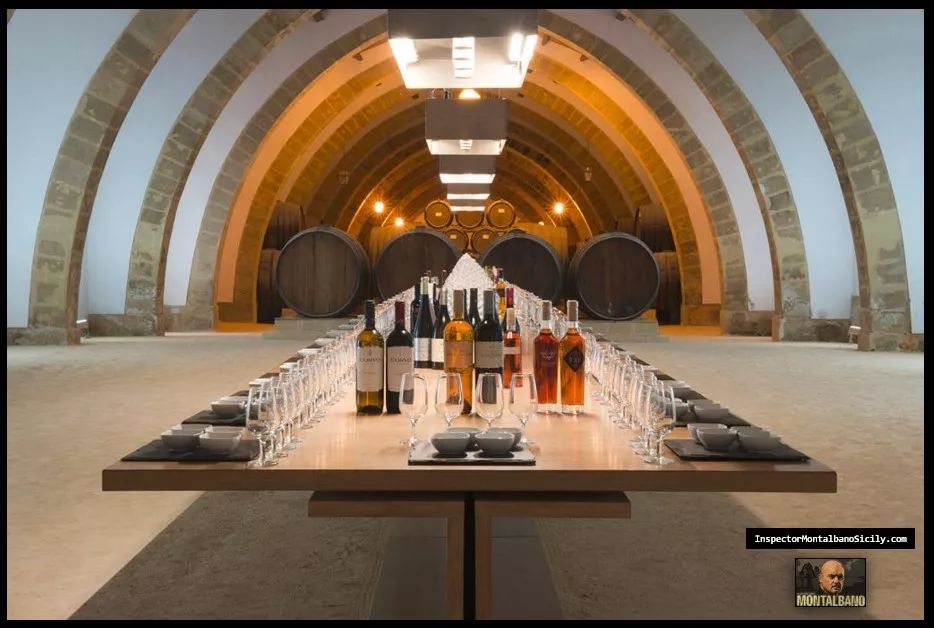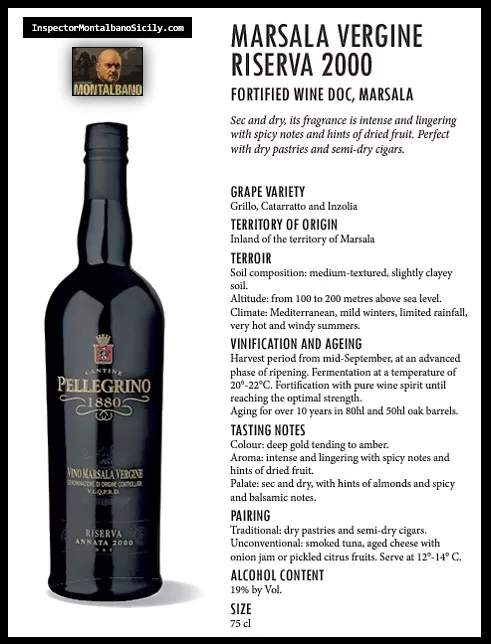Are you a wine enthusiast curious about Marsala wine’s shelf life? Look no further as we unravel the secrets behind this beloved Italian wine and how long it can last. Marsala wine has captivated wine lovers for centuries with its rich history and distinctive flavors. Whether you use it for cooking or savor it as a dessert wine, knowing the shelf life of Marsala wine is essential for maintaining its quality and ensuring an enjoyable experience. So, How Long Does Marsala Wine Last after it opened and once it opened? In this article, we will explore the factors that influence the longevity of Marsala wine, including storage conditions, bottle types, and the varieties available. So, if you want to make the most of your Marsala wine collection and serve it at its peak, join us as we delve into the fascinating world of Marsala wine and uncover the secrets to its longevity.
Table of Contents
Understanding the Shelf Life of Marsala Wine
Marsala wine is a fortified wine from Marsala in the province of Trapani, on the beautiful island of Sicily, Italy. Therefore, Marsala wine is DOC, in Italian “Denominazione di Origine Controllata,” meaning “Designation of Controlled Origin”.
This wine has a surprisingly long shelf life compared to other wines. The shelf life of Marsala wine can vary depending on several factors, including the style of Marsala, its aging process, and the storage conditions. Generally, Marsala wines can last anywhere from a few weeks to several decades if stored properly.
Marsala wine has three main styles: *Fine*, *Superiore*, and *Vergine*. The Fine category represents the youngest and most affordable Marsala wines, typically aged for at least one year. Superiore wines are aged for at least two years and offer more complexity and depth of flavor. Vergine Marsala (meaning virgin), the highest quality category, is aged for at least five years and is known for its rich and intense profile.
Factors That Affect the Longevity of Marsala Wine
Several factors influence the shelf life of Marsala wine, and understanding these factors is crucial for preserving its quality over time. One of the most significant factors is the style of Marsala wine. As mentioned earlier, Fine Marsala has the shortest shelf life, while Vergine Marsala can age gracefully for decades. It’s essential to consider the aging potential of the Marsala wine you have before determining its lifespan.
Another factor is the storage conditions. Marsala wine is sensitive to temperature, light, humidity, and vibrations like any other wine.
Ideally, Marsala wine should be stored in a cool, dark place with a constant temperature between 12°C and 18°C (55- 65°F). Fluctuations in temperature and exposure to light can accelerate the aging process and lead to premature spoilage.

How to Properly Store Marsala Wine
How to Store Marsala Wine? It’s crucial to store your Marsala wine properly to ensure longevity. Here are some guidelines to follow:
Best Temperature to Store Marsala Wine
As mentioned earlier, maintaining a consistent temperature between 12 °C and 18 °C (54- 65 °F) is essential. Avoid storing Marsala wine in areas prone to temperature fluctuations, such as near windows or household appliances.
Lighting Conditions When Storing Marsala Wine
Keep Marsala wine away from direct sunlight or bright artificial light. The wine’s flavors can be adversely affected as UV rays degrade it.
More Store Conditions for Marsala Wine
Humidity. While moderate humidity levels (around 70%) generally benefit wine storage, excessively high humidity can cause mold growth on the bottle’s cork. Aim for a humidity level between 50% and 80%.
Position. Store Marsala wine bottles horizontally to keep the cork moist and prevent it from drying out. A dry cork can lead to oxidation and spoilage.
Vibrations. Avoid storing Marsala wine in places with frequent vibrations, such as near appliances or heavy traffic areas. Vibrations can disturb the sediments in the bottle and negatively affect the wine’s quality.
Following these storage guidelines can maximize your Marsala wine collection’s shelf life and quality.
Signs of Spoilage
Despite proper storage, Marsala wine can still spoil over time. So, How Long Does Marsala Wine Last?
Unopened Marsala wine can last for a long time if stored properly. Generally, the higher the quality of the Marsala, the longer it can be stored. Marsala wines labeled Fine, Superiore, or Vergine (Virgin) can be stored for several years or even decades, improving in flavor and complexity over time.
How Long Does An Open Bottle Of Marsala Wine Last
Once opened, does Marsala wine go bad? Once opened, Marsala wine begins to oxidize, and its quality deteriorates over time, like any other wine. Let’s understand the times for opened and closed Marsala wine bottles.
How Long Does Marsala Wine Last Once Opened?
It’s essential to identify the signs of spoilage once opened to avoid consuming wine that has gone bad. However, you can prolong its shelf life by following some guidelines and identifying the common signs of Marsala wine spoilage:
Refrigeration: After opening a bottle of Marsala wine, storing it in the refrigerator or under controlled temperature conditions is best. Generally, cooler temperatures slow oxidation, helping preserve the wine’s flavor for extended periods.
Prevent Oxidation: Ensure the bottle is tightly sealed to minimize air exposure and oxidation after each use. You can use a wine stopper or vacuum pump to remove excess air from the bottle. If the wine has been exposed to air for an extended period, it may develop an unpleasant taste, resembling vinegar. Oxidized Marsala wine loses its vibrant flavors and can be easily detected by its off-putting aroma.
Cork Taint: A musty smell or taste often indicates cork taint, which occurs when the wine has come into contact with a contaminated cork.
Sediment: While sediment in Marsala wine is not necessarily a sign of spoilage, it can affect the texture and taste. Sediment is more common in aged Marsala wines and should be carefully decanted before serving to remove unwanted particles.
When wine turns “ugly” or goes bad, it generally means it has undergone spoilage or oxidation, resulting in undesirable vinegar-like flavors and rancid-like aromas. If you notice any of these signs, it’s best to discard the Marsala wine to prevent a disappointing drinking experience.
Tips to Extend the Lifespan of Marsala Wine
If you want to extend the lifespan of your Marsala wine collection, consider implementing the following tips:
Invest in Quality: Opt for higher-quality Marsala wines, such as Superiore or Vergine, as they typically have a longer aging potential.
Maintain Ideal Storage Conditions: Consistency is vital when storing Marsala wine. Ensure the proper temperature, humidity, and light conditions are met to preserve the wine’s quality.
Avoid Frequent Temperature Changes: Fluctuations in temperature can accelerate the aging process and impact the wine’s flavors. Keep your Marsala wine in a stable environment to minimize temperature changes.
Monitor the Cork: Regularly inspect the condition of the cork. It may be time to consume if it shows signs of deterioration or mold growth. Re-cork the wine is not recommended.
By following these tips, you can prolong the lifespan of your Marsala wine and enjoy its rich flavors for years to come.
Pairing Marsala Wine with Food
Marsala wine’s versatility extends beyond being a standalone drink. Its unique flavors make it a fantastic accompaniment to various dishes. Here are some classic food pairings that complement Marsala wine:
Traditional Pairing of Marsala Wine: dry pastries and semi-dry cigars.
Unconventional Pairing of Marsala Wine: smoked tuna, aged cheese with onion jam, or pickled citrus fruits.
Generally, serve at 12°-14°C (54- 57°F). However, it depends on each specialty. For instance, Soleras should be tasted at a temperature of 16-18°C (61- 65°F) paired with sesame biscuits or dark chocolate. Served at 14°C, it is ideal for oysters or smoked fish. Another example is Anita Garibaldi Marsala Superiore Ambra Dolce DOC, which is best served at 12°-14° C and ideal with all Sicilian desserts with ricotta cheese, tiramisu, cannoli, cassata di ricotta.
Also, Marsala wine is a secret ingredient in many savory dishes, particularly in Italian cuisine.
Experimenting with different food pairings can enhance your Marsala wine experience and elevate your meals.
Marsala Wine Brands and Their Recommended Consumption Timelines
Several renowned Marsala wine brands offer a wide range of options to explore. Here are a few popular brands and their recommended consumption timelines to understand how long marsala wine keeps after opening.
How Long Is Marsala Wine Good For: Cantine Florio, one of the oldest and most respected Marsala wine producers, recommends consuming their Fine Marsala within two to three years of purchase. Superiore and Vergine Marsala can be enjoyed for up to 10-20 years and beyond.
How Long Is Marsala Wine Good For: Pellegrino suggests consuming their Fine Marsala within three to five years. Their Superiore and Vergine Marsala can age gracefully for 15-20 years and 30 years or more, respectively. One of the best Marsala wines in Sicily is probably the Cantine Pellegrino Marsala Vergine Riserva 2000 Fortified Wine DOC, Marsala.

How Long Is Marsala Wine Good For: Cantine De Bartoli, known for its high-quality Marsala wines, recommends consuming their Fine Marsala within five years. Their Superiore and Vergine Marsala can be enjoyed for up to 20 years and 40 years or more, respectively.
Keep in mind that these are general guidelines, and individual bottles may vary. It’s always a good idea to consult the specific recommendations provided by the producer for optimal enjoyment.
You may be interested to enjoy these two recommended Marsala wines from excellent Sicilian Cantine: Cantine Pellegrino Marsala Rubino Superiore Wine and Florio Vecchioflorio Marsala Superiore Wine.
Frequently Asked Questions About Marsala Wine Aging
Can Marsala wine improve with age? Yes, Marsala wine can improve with age, especially the higher-quality varieties. Marsala wines can develop more complex flavors and aromas with proper storage and aging.
What is the best temperature to serve Marsala wine? Marsala wine is best served slightly chilled, between 55°F and 65°F (12°C and 18°C). This temperature range allows the wine’s flavors to shine without being overly warm or cold.
Can I use expired Marsala wine for cooking? While expired Marsala wine may not be enjoyable to drink, it can still be used for cooking. The heat and other ingredients can help mask any off flavors.
Can I age Marsala wine after opening the bottle? Unlike traditional wines, Marsala wine does not benefit from additional aging after opening the bottle. It is best consumed within a few weeks after opening.
Recommended Reading: Inspector Montalbano Recipes
Final Thoughts
Marsala wine, with its rich history and diverse flavors, offers a unique experience to wine enthusiasts. Understanding the factors influencing its longevity, proper storage techniques, and food pairings can help maximize your Marsala wine collection.
Whether you prefer a young and vibrant Fine Marsala or an aged and complex Vergine Marsala, knowing how to preserve and enjoy this beloved Sicilian wine is critical. So, raise a glass of Marsala wine, savor its rich flavors, and indulge in the secrets within each bottle. Cheers!


